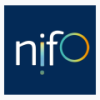Interoperable Europe, through the National Interoperability Framework Observatory (NIFO), is pleased to announce the publication of the 2023 edition of its State-of-play report on Digital Public Administration and Interoperability.
What can be found in this report?
The 2023 edition of the State-of-Play report on digital public administration and interoperability deep dives into three key policy areas which are at the heart of the current policy landscape:
- Interoperability and interoperable digital public services,
- Innovative use of technologies by the public sector,
- Data sharing in Europe.
To do so, it showcases digital initiatives around these topics implemented by 31 European countries, as well as undertaken at EU level. Building on a comprehensive overview and analysis, the report identifies frameworks of reference, noteworthy best practices, and potential areas of improvement for European countries. The first chapter delves into cross-border interoperability, digital-ready policymaking and the reuse of solutions; the second chapter focuses on AI and GovTech; and the last chapter addresses the development of data spaces and smart data platforms, as well as data exchanges between public administrations. In addition, the latest results of the European Interoperability Framework (EIF) monitoring mechanism further complement the analysis provided.
Our findings
The report shows that European countries have adopted a wide range of initiatives to facilitate their journey toward a more digitised public sector — further confirming a trend that has been already observable since some years, especially following the COVID-19 pandemic. Likewise, it emerges from the report that public administrations are still pursuing a “shift of mindset” when it comes to the use of digital tools and the conception of digital public services, putting user-centricity, usability and interoperability at the centre.
- Regarding interoperability, notable progress has been made in the field of cross-border interoperability, digital-ready policymaking, and the reuse of solutions at national or international level. However, common challenges remain, such as raising awareness on the importance of interoperability and the need to break down silos, in addition to technical interoperability challenges.
- For the innovative use of technologies by public administrations, approaches to AI and GovTech are quite diverse and heterogeneous. This often depends on the digital maturity of European countries, especially for GovTech which is still at early stage of adoption.
- When it comes to data sharing, public administrations have developed innovative ways to share data, mostly through the creation of new advanced data infrastructures, such as data platforms and data spaces. Despite that, the main challenge remains the difficulty to actually share and use data due to multiple factors, such as the lack of interoperability, stakeholders’ fear to provide or open data, the lack of efficiency in data collections, the absence of a data governance framework and different data qualities.

